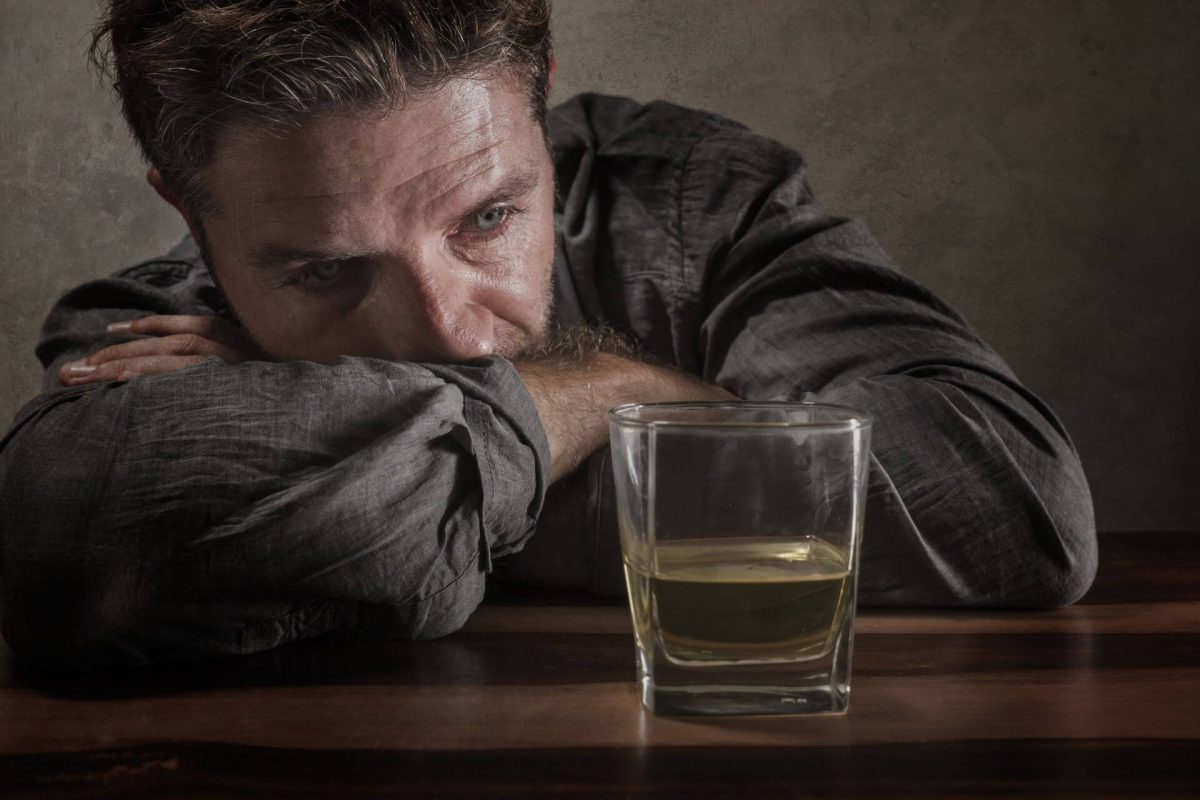Drug and alcohol addiction does not discriminate based on social status, race, gender or education. Addiction can happen to everyone; even successful lawyers, chefs, doctors, pilots and professional athletes. It has everything to do with genetics and environment factors and little to do with whether you are somehow “better or worse off” than others.
Substance abuse claims the lives, careers, relationships and well-being of thousands of professionals every year. It shouldn’t; if only more professionals would seek help and enter a treatment Program for their addiction or co-occurring disorders.

Why professionals don’t seek help for addiction
In America alone, statistics show more than 23 million people are living with addiction but only roughly 10% of people actually seek and receive help for the condition. This means over 20 million people who need help for addiction are not getting it.
We’ve come a long way in de-stigmatising substance dependence but there is still a degree of shame associated with admitting you may have an alcohol or drug dependency problem. For this reason, many professionals are at pains to hide the fact that they are battling with addiction or a co-occurring mental disorder from their colleagues and loved ones.
There are 3 common reasons why professionals don’t seek help for addiction:
- Denial
Denial is the cornerstone of why addiction continues to thrive. Many professionals with active addiction will privately acknowledge they turn to drugs and alcohol to cope with stress and hardships but not many associate the substance as the root cause of their problems. They’re more likely to blame their workload, the economy or their boss or staff for their pain rather than face up to the fact that it’s the drugs or alcohol that is dragging them down. - Shame
Shame is often the reason why professionals will go to great lengths to hide their addiction or co-occurring mental disorder. Shame is an overwhelming and painful emotion which leaves you feeling unworthy. They see themselves as a failure, disgrace or disappointment to your loved ones or peers. - Fear
Fear of going to rehab for drug or alcohol addiction is very real. And so is the fear of recovery. It takes motivation, determination and courage to enter a treatment Program for addiction and it doesn’t end there. Recovery is a lifelong journey and takes grit and pure determination to maintain sobriety. For many, the thought of how hard it’ll be to beat addiction is too much to bear and this prevents them from seeking professional treatment that they desperately need.

Can you keep your job and attend rehab?
This is one question that plagues professionals as they grapple with the realisation that they need treatment for addiction; possibly, fear that going to rehab will only make matters worse as they watch their career, reputation and relationships start to crumble.
What are your rights?
Taking South Africa as an example, employees that ‘self-identify’ their addiction to their employer are protected under the Labour Relations Act.
Item 10 of Schedule 8 of the Labour Relations Act says that if an employee tells the employer that they are suffering from an addiction, the company is legally obligated to take steps to help the employee resolve their addiction problem before they can proceed with the dismissal.
The act of firing an employee for addiction-related work performance issues opens up a heap of legislated procedure in South Africa as employees are protected by a list of LRA policies and the process has a lot of interpretive processes.
This means that any flaw in the dismissal process can be challenged in a CCMA hearing. If it is not correctly handled by the employer, the dismissed employee may be awarded up to a year’s salary with no productivity for the company.
What’s the right thing to do?
Ironically, going to rehab can actually save your career as well as relationships, finances and your life. Rehab can be the gateway to a better, healthier life and it should be seen as a lifeline rather than a shameful consequence of addiction.
If you own a business or run a office department, encouraging a substance-addicted employee to go to rehab can benefit your business. It’s proven that employees with addictions are less productive, spend more time on non-work-related activities, arrive late or leave early, sleep on the job or are absent more often. They’re also more likely to have workplace accidents and typically their cost to company on healthcare is double that of other employees.
Pros and cons of the 2 options for addiction treatment
Professionals have the option of inpatient and outpatient addiction treatment as well as co-occurring disorders which includes depression, anxiety and executive burnout.
Option 1: Residential rehab centre
Professional individuals stay at a rehab facility and receive round-the-clock treatment that encompasses a detox Program, individual and group therapy, healthy meals, exercise and holistic activities as well as support once you leave the rehab facility. You stay is supported by a multi-disciplinary team who are specialised in addiction management and healthcare.
Most inpatient addiction treatment centers offer a minimum stay of 28-days which is usually the maximum medical insurance companies cover. Many professionals opt to stay longer; anything from 90 days to a year, depending on how severe their addiction is.
Pros
Inpatient residential treatment centers provide you with a structured environment that’s free of temptations and distractions. Treatment at residential addiction centers are generally more intensive than at outpatient centers.
You have 24/7 access to the expertise of a multi-disciplinary addiction specialist team who can help you re-learn how to live a life free of drugs or alcohol. This includes supervised detox, individual and group therapy, holistic activities and healthy food to heal mind, body and soul.
Choosing a luxury treatment centre like White River Manor provides a clean, sober environment where you can temporarily escape from the daily stresses and responsibilities of work, home, family and other relationships.
Typically, they have an in-house business centre and you’re allowed to keep in contact with people so you’re not isolated from work or home. But that’s your choice.
Cons
A residential addiction center costs more than an outpatient centre. This may be prohibitive if your medical aid or employer is not willing to cover the cost of a minimum 28-day Program. Bear in mind, there is a significant physical and emotional cost to NOT getting treatment for addiction; you’ll have to weigh that up in your decision.
There is a transition period after patients leave a residential treatment centre where people in recovery are vulnerable to relapsing. Basically, you leave a protected, safe environment and go back into the outside world where you face all the pressures and stress that triggered substance abuse.
Many people who’ve been in rehab find it hard to adjust to life outside of the rehab centre without a good support system and are vulnerable to relapse.
Option 2: Outpatient treatment centre
Outpatient treatment centers allow professionals to go home at night to their family or it may involve fitting in therapy sessions in between work commitments. Some people go to a sober living facility at the end of the day if it’s not suitable to go home.
This outpatient option is ideal for those who aren’t able to walk away from home and work to spend a month in rehab. You have access to team of multi-disciplinary addiction specialists, can attend individual or group therapy and have support in recovery without disrupting your daily life.
Pros
Outpatient centers cost less than residential treatment centers. It’s the next best thing to staying at an inpatient facility for 28 days if you’re self-funding your treatment Program. It’s a more practical option for professionals who can’t escape the demands of their business.
If you are self-employed, being able to continue working while getting help for addiction means you can maintain a steady stream of income. Putting further stress on yourself by losing income or even clients while in rehabe won’t help with your addiction recovery.
You don’t have to transition from a protected, “artificial” environment to real world. You’ve already adapted to juggling work, home and rehab and this should stand you in good stead in your journey to recovery.
Cons
Outpatient addiction care is not as intense as inpatient care. It requires you to be disciplined about attending individual or group meetings and if you don’t commit 100 percent, it can leave you feeling worse off; killing off the last of your self-worth.
You don’t have the benefit of “escaping”. You still have to deal with the stresses of everyday life and navigate around people who are either a bad influence or enablers. When you juggle everyday life with rehab and recovery, you may become overwhelmed and turn to drugs or alcohol again.

Rehab treatment for professionals
Research shows that some professionals are more vulnerable to drug and alcohol addiction than others. The high prevalence of addiction in certain professions generally stems from chronic stress, overwork and executive burnout. Often, it leads to co-occurring psychological orders such as depression and anxiety.
Jobs that have the highest rates of addiction include:
- doctors, dentists and physicians
- healthcare workers and emergency personnel
- attorneys and lawyers
- pilots
- law enforcement officers
- miners
- construction workers
- chefs and food service workers
- corporate executives like CEOs
- musicians and entertainment artists
Regardless of your profession, it’s important to find a quality rehab facility that offers an individualised treatment Program that will give you your best chance of recovery. You also have access to a multi-discipline team who are specialised in addiction and mental healthcare; they can diagnose co-occurring disorders if they exist.
Many professional executives manage to live as high-functioning drug and alcohol addicts and still achieve career success. However, addiction eventually catches up with you and could lead to you losing your reputation, career, family, home and even your life.
Rather than worry about how seeking help for addiction might damage your reputation, focus on yourself and take the first step to healing by getting the help you need.
We’re here to help.
Contact us today if you’d like a confidential and free chat with one of our highly-trained professionals at White River Manor.

